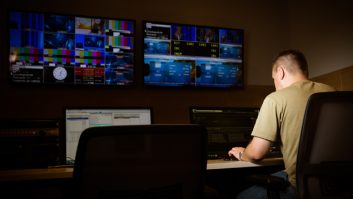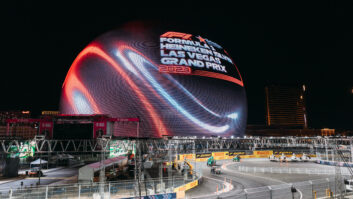Most people understand by now that the solution to the environmental crisis isn’t just a technological one. Even if energy generation on earth magically went zero-carbon overnight, there are still a whole series of interlocking economic, societal and behavioural practices that need to be rethought if we are going to steer the planet away from the abyss.
Still, if we don’t get the technology right there’s not much hope of solving all the other problems. And luckily technology is where some of the fastest, easy wins are in creating a sustainable future.
BAFTA’s albert was first launched as a piece of tech. It was a carbon calculator, hatched in 2011 at the BBC. It was soon after given to BAFTA for general use by the film and TV industry and has since expanded to become the industry’s leading body for sustainable content production. We convene broadcasters and content creators across multiple working groups to create and publish best practices and to raise public awareness through relevant content, and our albert certification programme encourages sustainable practice across every type of production.
The albert certification process is infamously rigorous, with production managers working hard to ensure their submissions are accurate and thorough. Some companies are now in a regular groove of sustainable practice, while others are only just getting used to adopting new ways of doing things. Decarbonisation and encouraging biodiversity are things no one is even close to doing perfectly and everybody is continuously learning from each other. But whether or not a production company gets fully paid for their content by a commissioner is often tied to a successful albert certification. Consequently, any technology that can give that company an edge in reducing its carbon footprint is going to be greeted with enthusiasm.
Creative Efficiencies
Technology – by definition – creates efficiencies, and through efficiencies, it has the almost magical ability to create time. The arrival of the internal combustion engine meant you could take a train across the country in the same time it would take your grandparents to drive a cart to the Big City, or it meant a single person could do more weaving in a day than their ancestors could do in a month.
Efficiencies – and the time benefits they create – are gold dust to producers looking to do more with less and to reduce their impact on the earth. Virtual production studios, leveraging LED or green screen tech, and distributed workflows seamlessly connecting multiple live production sites are two notable areas that seem to promise dramatic reduction in carbon footprints and material waste.
When it comes to the environmental crisis, time is something that we are desperately short of. We use words like ‘crisis’ and ‘emergency’ when we talk about it. An emergency is a situation where you’ve run out of time, when you’ve lost the ability to choose, where circumstances are dictating your reactions.
What the screen industries need now are technologies that bring more efficiencies than ever before, that can allow us to create content consuming far less energy and far fewer resources – and far less time.
Jevons’ Paradox
But, again, technology alone won’t solve the environmental crisis. In fact, technology without smart stewardship and cooperative planning will probably just make it worse.
In 1865 Victorian economist William Stanley Jevons outlined a principle that has become known as Jevons’ Paradox. The principle underlines the fatal flaw in efficiency for efficiency’s sake. In his studies of the coal industry of the time, Jevons observed that greater efficiency in the use of coal didn’t lead to less coal consumption, it actually led to an increase in coal consumption. Jevons’ Paradox is now a widely studied phenomenon which illustrates that efficiencies can enable greater craving for the very things they’re trying to conserve. Snack makers know this when they make something ‘bite-size’.
The extra resource and efficiency produced by technology is often automatically reinvested into the same workflows it came out of. The results are that instead of lightening the workload on your existing crew, you have the capacity to bring in even more crew to do even more work; instead of having to do something in the studio, you can now afford to do it on location; instead of three projects a year, you can now throw yourself into six.
The first impulse we have when efficiencies arrive is to do more. Instead, we should take that extra resource and think about how to do better – and smarter. The next generation of content production isn’t about more of the same, it’s about creating something brand new. Technology alone won’t solve the environmental crisis. But technology combined with wise planning and cooperative effort just might.






